Navelbine 50mg Injection
| Pack Size | Price | Price / Unit | Quantity |
|---|
Looking for bulk / B2B pricing? | Send Inquiry |

| SKU | 11353 |
| Manufacturer | Pierre Fabre Group |
| Categories | Anti Cancer |
| Delivery Time | 10 - 14 Working Days |
| Strength | 50mg |
Introduction to Navelbine 50mg Injection
Navelbine 50mg Injection is a chemotherapy medication used primarily in the treatment of certain types of cancer, such as non-small cell lung cancer and advanced breast cancer. It contains the active ingredient vinorelbine, which belongs to a class of drugs known as vinca alkaloids.
These drugs work by interfering with the growth and spread of cancer cells in the body, ultimately helping to stop or slow their multiplication. The injection is usually administered by a healthcare professional directly into a vein (intravenous use), either alone or in combination with other cancer treatments.
The dosage and frequency depend on the type and stage of cancer, as well as the patient’s overall health. Close monitoring is essential during treatment to manage possible side effects such as low white blood cell counts, fatigue, nausea, and constipation.
Uses of Navelbine 50mg
Navelbine 50mg Injection is mainly used in the treatment of the following conditions:
- Non-Small Cell Lung Cancer (NSCLC)
- Advanced or Metastatic Breast Cancer
- Types of cancers based on clinical judgment
How Does Navelbine 50 Works?
Navelbine 50mg works by targeting and disrupting the process of cell division in cancer cells. Its active ingredient, vinorelbine, interferes with the formation of microtubules—structures that are essential for a cell to divide and multiply.
By binding to tubulin (a key protein in microtubules), vinorelbine prevents the cancer cells from successfully completing mitosis (cell division), ultimately leading to cell death. This action helps slow down or stop the growth and spread of cancerous tumors in the body.
Side Effects of Navelbine 50mg
Common Side Effects
- Low white blood cell count
- Nausea and vomiting
- Constipation
- Fatigue or weakness
- Hair thinning or hair loss
- Mouth sores
- Injection site reactions
Serious Side Effects
- Severe Bowel Obstruction
- Lung Problems
- Severe Allergic
- Nerve Damage
Dosage of Navelbine
Warnings & Precautions
Warnings and precautions for using Navelbine 50mg Injection include the following:
1. Blood cell monitoring:
- Regular blood tests are essential before and during treatment to check for low white cells, red cells, and platelets, which can increase the risk of infection, anemia, or bleeding.
2. Liver function:
- Patients with liver problems should use Navelbine cautiously, as the drug is metabolized by the liver and may accumulate to harmful levels.
3. Avoid intrathecal use:
- Navelbine must never be administered into the spinal fluid, as this can cause fatal neurological damage.
4. Infection risk:
- Patients should avoid contact with people who have infections and report any signs of fever, chills, or sore throat to their doctor immediately.
5. Pregnancy and breastfeeding:
- Navelbine can harm an unborn baby and should not be used during pregnancy or while breastfeeding. Effective contraception is advised during and after treatment.
6. Peripheral neuropathy:
- If tingling, numbness, or weakness occurs, the doctor may adjust or stop treatment to prevent permanent nerve damage.
Safety Advice
- Follow dosage instructions exactly
- Keep all lab appointments
- Report symptoms early
- Avoid close contact with sick people
- Stay hydrated and eat fiber-rich foods
- Do not take with grapefruit or grapefruit juice
FAQs – Frequently Asked Questions
1. How Is Navelbine 50mg Injection Administered?
Navelbine 50mg Injection is given intravenously by a trained healthcare professional, usually into a vein over a short infusion period in a clinic or hospital setting.
2. Can I Receive Navelbine 50mg Injection At Home?
Navelbine 50mg Injection is typically not administered at home due to the need for professional handling and the risk of vein irritation or accidental tissue exposure.
3. Can I Eat Normally While On Navelbine 50mg Injection?
You can eat normally while receiving Navelbine 50mg Injection, but it’s best to avoid heavy meals right before treatment and stay well-hydrated unless advised otherwise.
Be the first to review “Navelbine 50mg Injection” Cancel reply
Related Products
Anti Cancer
Anti Cancer
Anti Cancer
Anti Cancer
Anti Cancer

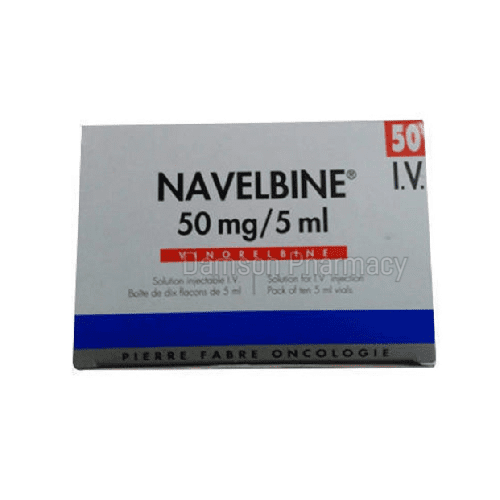
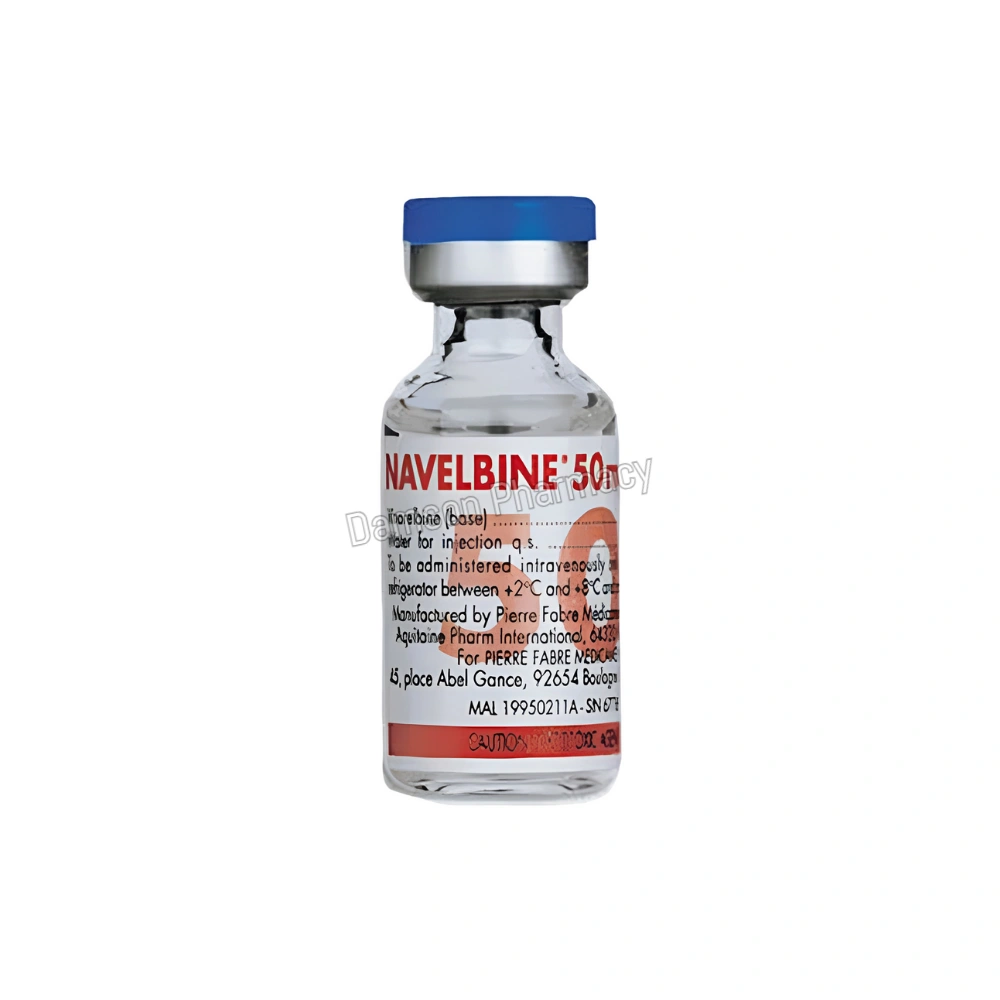
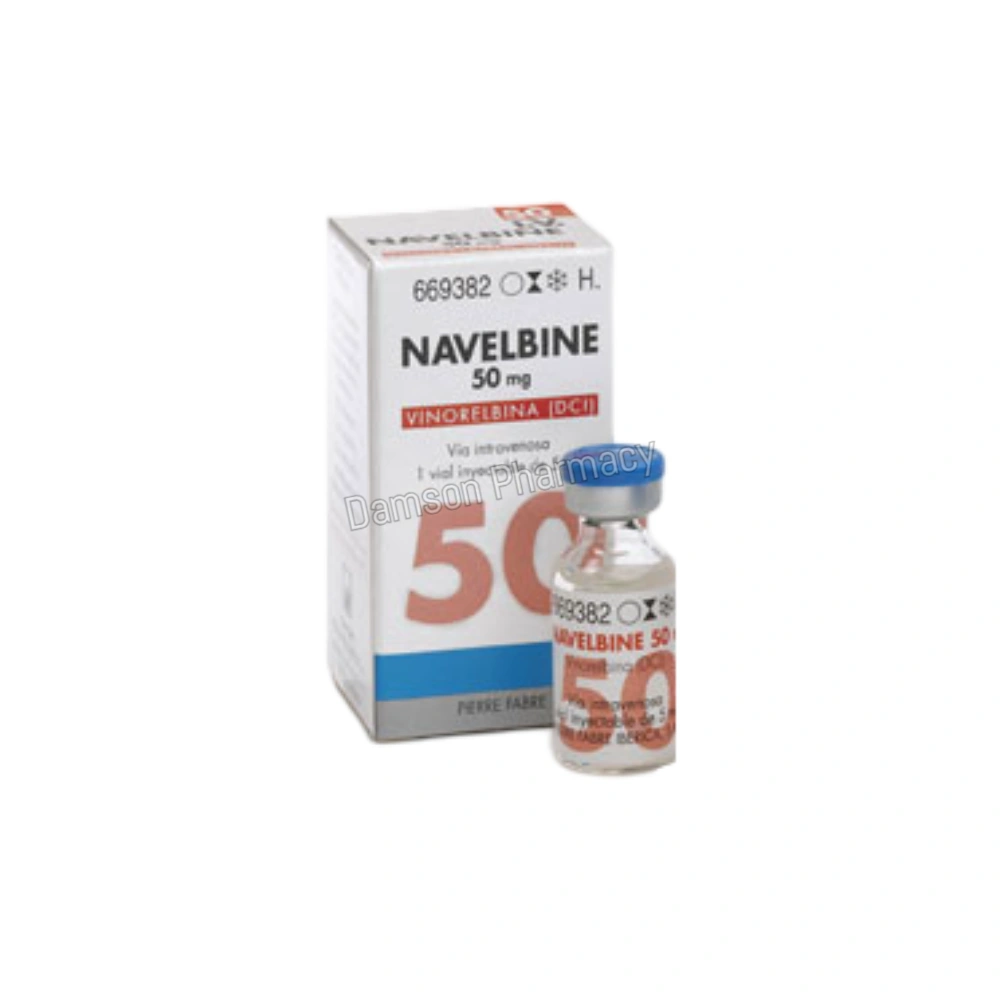
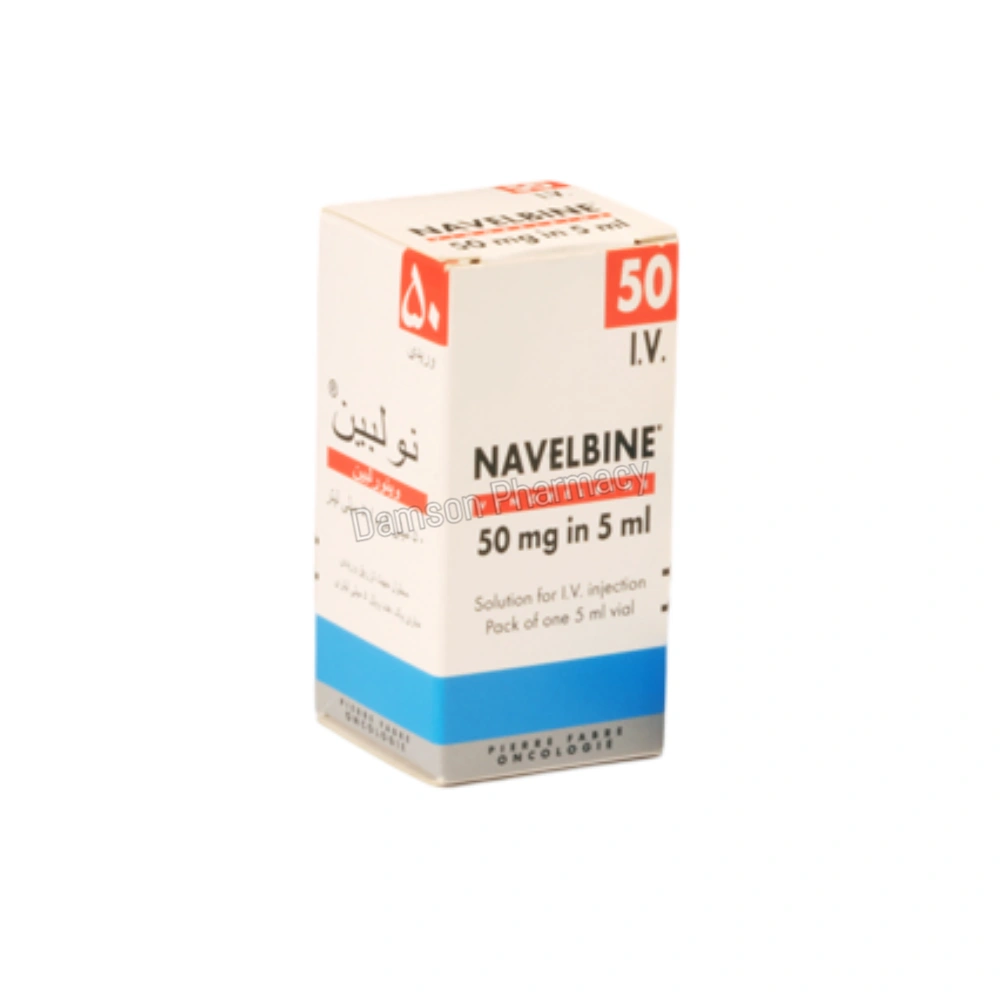
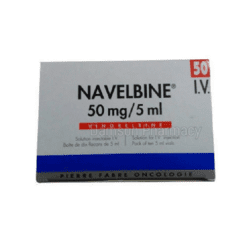
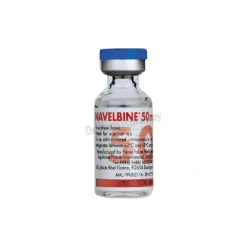
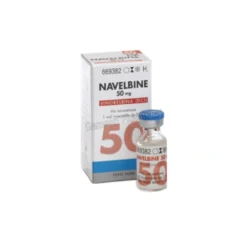
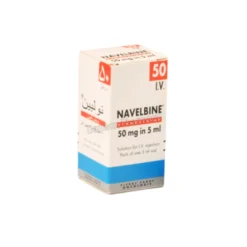





Reviews
There are no reviews yet.